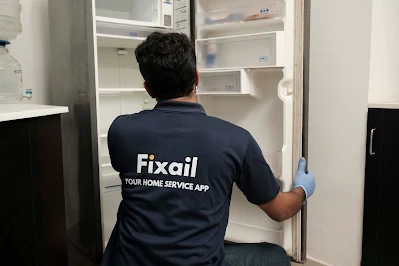Are You Ignoring These 5 Crucial Refrigerator Safety Checks?
Are You Ignoring These 5 Crucial Refrigerator Safety Checks?
Your refrigerator runs all the time to keep your food fresh, but how often do you check if it's working properly? Ignoring important safety checks can cause food to spoil, create electrical dangers, or lead to costly repairs. If you're experiencing temperature inconsistencies or strange noises, it might be time to schedule a refrigerator repair in Calicut before things get worse.
Let’s look at the five safety checks every refrigerator owner should do — and why skipping them could cost you.
1. Is Your Refrigerator Cooling Consistently?
The clearest sign of trouble is when your fridge isn’t keeping things cold enough. Uneven cooling can spoil food and pose health risks. Use a thermometer inside your fridge to make sure it stays below 4°C (40°F). If the temperature changes a lot or takes too long to return after opening the door, your fridge might be overworked, possibly due to a failing compressor or faulty thermostat.
✔️ Check Weekly: Keep an eye on the temperature and look for frost build-up or warm spots.
2. Have You Inspected the Door Seals Lately?
The gaskets (rubber seals) on your refrigerator door are very important for keeping cold air inside. If they’re loose, dirty, or cracked, your fridge has to work harder, which wastes energy and lowers cooling efficiency.
Try this test: Close a dollar bill in the door. If it slips out easily, the seal isn’t tight enough.
✔️ Check Monthly: Clean the seals with soapy water and check for cracks or looseness.
3. Is There Enough Space Around Your Fridge?
Many people place their fridge against a wall or surround it with cabinets, but poor ventilation is a hidden risk. Without enough airflow, your fridge can overheat, harming its parts and increasing the risk of fire.
Make sure there are at least 1–2 inches of space on each side and at the top, and that the back coils aren’t blocked by dust or debris.
✔️ Check Quarterly: Vacuum dust off the condenser coils and check spacing.
4. Is the Power Cord in Good Condition?
The power cord of the refrigerator is often overlooked, but it’s important to check it for fraying, bends, or damage. Faulty wiring can cause short circuits or fire risks.
Also, avoid plugging the fridge into an extension cord or power strip. Always use a grounded wall outlet for safety.
✔️ Check Annually: Inspect the plug and cord for signs of wear or overheating.
5. Are There Signs of Water Leaks or Ice Build-Up?
Puddles under your fridge or ice in the freezer can show blocked drain lines, broken defrost systems, or worn-out seals. If these problems are ignored, they can damage floors or lead to expensive repairs.
✔️ Check Bi-Monthly: Look for unusual moisture, frost build-up, or dripping sounds inside the unit.
Conclusion
Refrigerator safety is not only about keeping food cool — it's also about avoiding electrical risks, making your appliance last longer, and reducing energy expenses. These five checks can help you avoid future problems and keep your home running well.
If you see anything strange, like loud sounds, leaks, or higher energy bills, don’t wait. Call Fixail — your reliable service for refrigerator repair in Calicut. Our experienced technicians will find the problem, fix it quickly, and make sure your fridge works safely and efficiently.
With Fixail, maintaining your refrigerator is easy, trustworthy, and stress-free. Because a safer fridge means a safer home.




Comments
Post a Comment